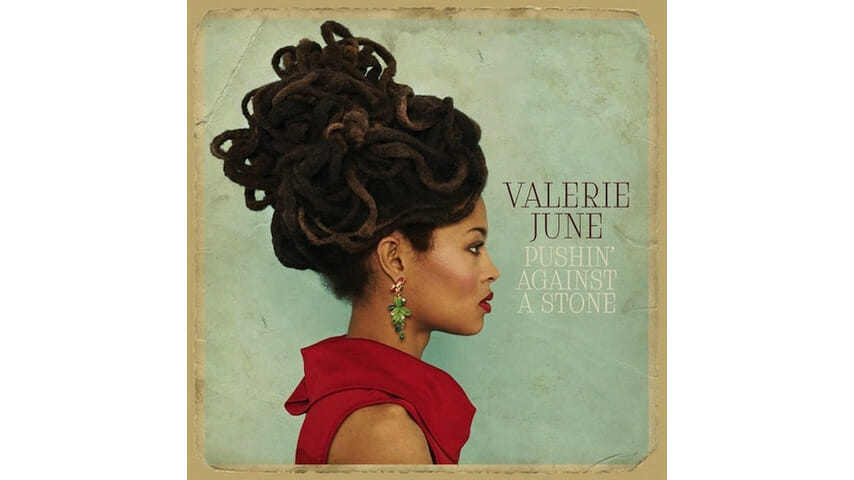Valerie June: Pushin’ Against A Stone

The singer and multi-instrumentalist Valerie June “was raised one hour from Memphis and two hours from Nashville,” a place in art where, according to June, “the color lines of the South seem to blend.” This combination is reflected in her musical choices: she has worked with musicians who seemingly have little in common, ranging from Old Crow Medicine Show to Me’Shell Ndegeocello. On June’s third full-length, Pushin’ Against A Stone, it doesn’t quite matter just how June gets where she is going, as long as she gets there: the musical ends justify the blend of genres that makes up her means. She joins a number of other artists who don’t bother to distinguish between country, folk, soul and blues, including Michael Kiwanuka, Hiss Golden Messenger, Alice Smith and The Black Keys.
-

-

-

-

-

-

-

-

-

-

-

-

-

-

-

-

-

-

-

-

-

-

-

-

-

-

-

-

-

-

-

-

-

-

-

-

-

-

-

-








































